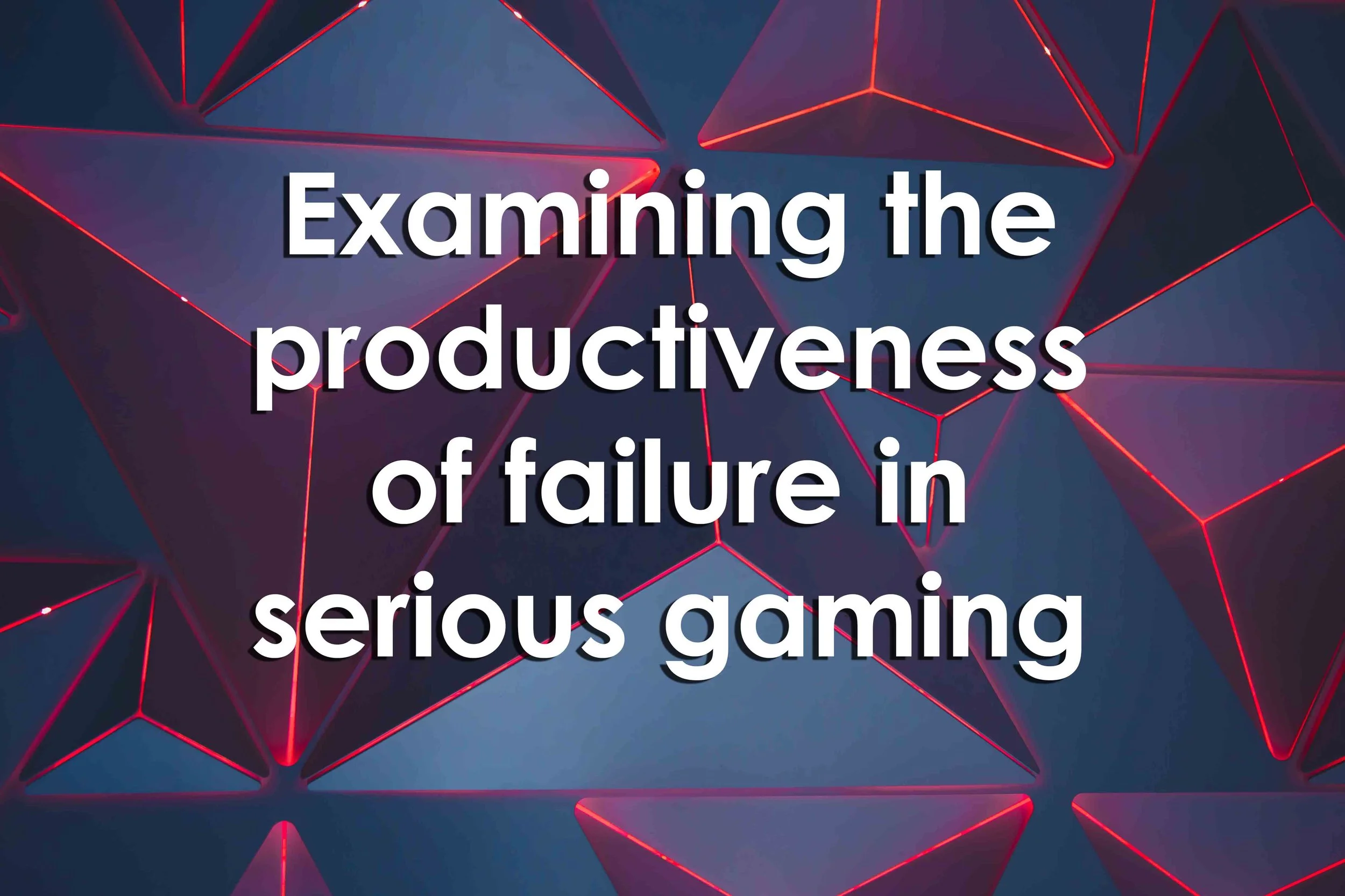Examining the productiveness of failure in serious gaming
Examining the productiveness of failure in serious gaming
Examining the productiveness of failure in serious gaming
By Wim Westera
Abstract
“Serious games are games used for non-entertainment purposes, e.g. in education and training. As most serious games are highly performance-oriented and consequently include scoring systems that reward correct performances, players tend to adopt error-avoiding strategies. But thereby the players are deprived of the opportunity to learn from their mistakes. This study investigates how the differences between performance and learning can be described and formalised. To this end, it presents a computational model that takes into account the learning from mistakes. The model was empirically validated by comparing its outcomes with real-world game data. The results show that performance metrics systematically overestimate the player's actual learning at early stages in a game and underestimate these at the end. Three evaluation metrics describing the progression, efficacy and efficiency of learning show how these differences depend on the players' knowledge growth capacities and their success rates in the game. Game scoring systems should best avoid penalties for making mistakes, should reward error correction positively and should provide sufficient feedback on failure.”
Reference
Westera, W. (2022, January 22). Examining the productiveness of failure in serious gaming. Retrieved April 13, 2022, from https://www.inderscienceonline.com/doi/abs/10.1504/IJTEL.2022.120561
Keywords
Serious games, games-based learning, applied games, assessment, learning, performance, simulation models, mistakes, scoring system, empirical, computational, mastery, research

